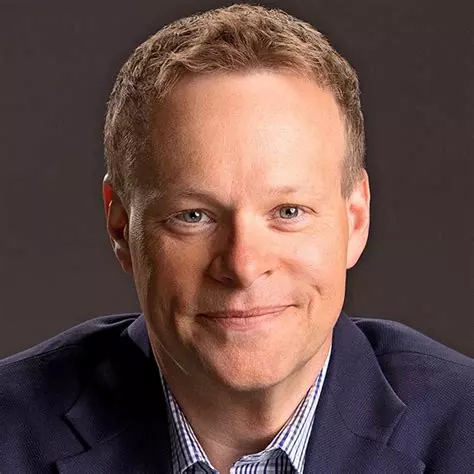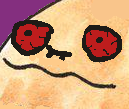For me reading the Tao Te Ching was a game changer. Some of the ideas in that book really changed my perspective on things.
The Complete PC Upgrade & Maintenance Guide by Mark Minasi. I read this book cover-to-cover back in the 90s - when I was not even a teenager - and it had a massive impact on my life. I was already a bookworm at the time so it wasn’t a big deal to read this massive book as a kid, but the stuff that I learnt in it was so fascinating that I couldn’t keep it down. I originally got my parents to buy it so that I could mess around with and learn more about our old home PC, but thank to the book, not only did I build my first PC successfully (a Pentium III 450 with an nVidia Riva TNT), I gained the skills to fix most computers - my favorite hobby back then was to go around my friends and families homes and fix their PCs.
This one time I got rid of some viruses at my mum’s office, and my mum’s colleagues were so impressed that started calling me over to their homes to fix and optimize their PCs. Everyone used to call me a “whizkid” and a “genius”, but a lot of that praise was thanks to that book. Needless to say, I have a successful career in IT today, and it wouldn’t be a stretch to say that my career pathway - and my primary hobby till date (messing around with computers) was greatly influenced by the book that I once read as a kid.
Siddhartha by Herman Hesse. I read it every 5 years or so. A quick read that changed my perspective on suffering and seeking truth.
Same and also Man’s Search For Meaning. Really puts modern life into perspective.
This is probably triggering for some people one of the points of it to confront the worst aspects of humanity and how you can come back from it. I hesitate to recommend it as it is very difficult to read for many (all?) people.
I came here to say both of these for the same reasons.
I read them both after reading some people saying they changed their lives on reddit. Siddhartha had some effect on my I still can’t pin down, bit changed how I looked at my life.
I’ll read Siddartha, thanks
Anything by Hesse is a great read, and fairly short. Demian, Steppenwolf, Journey to the East… It’s all good, all has good themes and messages, all very compelling.
The Hitchhiker’s Guide to the Galaxy. It was one of the cornerstones of developing my sense of humor and starting a long (although now over) career involving comedy in one way or another.
Really enjoying a reread of the entire series. Give a try to the Dirk Gently books if you haven’t.
I’ve read them! I’ve read everything Douglas Adams has written that is available.
And if you haven’t seen this yet and are an Adams fan, it’s absolutely worth it.
https://www.goodreads.com/book/show/123957893-42
Get the hardcover. It’s surprisingly inexpensive for a hardcover and an ebook won’t do it justice.
Is your career in comedy really over if we’re all still here laughing at you? And we are laughing at you.
Your career in comedy was over before it started. I’m assuming this is meant to be an attempt at mocking him as a joke. I can’t even tell whether ur intending to be funny abt it or whether you just genuinely hope that makes him feel bad, if it’s the latter that’s honestly really sad mate.
“Speaker for the Dead”. Despite the authors horrendous personal views on a lot of issues, this book has a profound impact on me as a young teenager with an interest in philosophy. What really stood out to me was the way complex philosophical concepts were made easily accessible. I also liked the reckoning journey Ender went on and how it took his personal struggles in the first book to their extreme (though imo logical) conclusion.
Def my fave of that series too.
Das Kapital
The Very Hungry Caterpillar was a game changer for me. Mind.fucking.blown. The plot arc was a tour de force and the twist at the end was sensational.
“Escape from Childhood” by John Caldwell Holt.
Throughout my youth, I saw the unjust way that young people are treated in society. The exclusion, the other-ing, the infantilization. Everyone around me acted like it was normal, even right, to treat whole swaths of the population more like property than people, for no other crime than having not existed for an arbitrary number of days, regardless of actual ability, experience, knowledge…
This book made me feel more seen and understood, and less alone, than anything else I had ever read. Just knowing that literally anyone else had seen what I had seen and actually acknowledged it was moving in a way that’s hard to describe.
I wish I had found it before I was already twenty years old, but what can you do?
That’s going on my wish list.
https://annas-archive.org/md5/8083c68d89de429de502a36f7304890f
here’s a link to the ebook on anna’s archive
OP can you describe some content of the book and why it changed your perspective? Otherwise why bother sharing.
I know this sucks but I’m here to back up the OP’s reply to you. The main theme of the book is that it can’t be taught; you have to take out of it whatever you take out of it.
I refer to it on occasion even now, 15 years after I first read it. It’s a fantastic book like that, but it’s about the nature of everything.
I feel that the book should be interpreted by the individual. I feel its no use me saying my interpretations of the text, its better if you come up with your own.
False equivalency, just because you state your own interpretation doesn’t mean I can’t come up with my own. If you critically think abt the text which you should do anyways you will still get your own interpretation and infact by hearing others your own interpretation could be influenced in a way that is valuable in and of itself. The most anyone or thing can do is influence your interpretation but the biggest influence by far is going to be your own personal life experiences and you stating your own interpretation won’t change those.
Where the red fern grows. Its a story about a boy in the ozarks during 19th century from a poor family who really wanted a pair of hunting dogs. The boy works his ass off for years, gets the dogs, loves them deeply, earns enough money from coon hunting for the family to move into town so the kids can get an education, and the book ends tragically bittersweet. I was never into the occasional religious tones but the message of working hard and saving every scrap to earn what you really want in life, embracing the freedom of life, and the healing power grief has when having to say goodbye to the things you loved fully when death inevitably comes for them. I read that book a dozen times over my life taking something new from it each time.
HTML 4 for Dummies
Tbh seriously, I think reading “PHP & MySQL in de praktijk” (PHP & MySQL in practice) must have had the most impact on my life. It definitely kickstarted my interest in programming.
Other than technical books, I thought “Testament Of Youth”, about the 1st world was, was pretty profound.
Two books. How to win friends and influence people by Dale Carnegie, and for whom the bell tolls by Ernest Hemingway
I’ve seen 1,001 memes from young people that clearly never heard the lessons in “How to Win Friends and Influence People”. They take the title literally and rant about it, as if it’s a text on how to manipulate people. And no, it’s not about being fake in your interactions. It’s about being genuine.
Carnegie simply set out to learn about interpersonal behavior, how to be a better socially. Frustrated by the lack of texts he found, after travelling the country consulting professors and universities, he rolled his own book.
Young people especially should give it a go. So many damned frustrations about being young get instantly bypassed with Carnegie’s wisdom. It’s the “cheat sheet” I had to figure out the hard way.
One can read it in any order, and the author says so! Just pick it up, open to a random chapter, give it a read.
Great example; He tells a story of visiting some folks he didn’t know one night. The host ran his mouth on and on and on. Carnegie just STFU and paid attention to the host. As they were parting, Carnegie was complemented on his fine oratory skills. All because he simply shut up and listened attentively, he was lauded as a great speaker!
A better title for the modern folks would be, “How to Get Along With Other Humans By Being a Genuine Human”.
When I was 13 I saw a book called “The eight” in the library and liked the summary. It was a big “adult” book and I thought at the time It will be boring to read big book like that. Well, I finish it in a week and loved it so much that books became a passion. One year later I had read all Sherlock Holmes collection of stories and books and even Lovecraft stories, which is not easy for a 13yo to understand. That book made me an adult reader and I still love it to this day. Which we had a tv series about it.
Why We Sleep. This book genuinely had me start caring about sleep.
What a wonderful website. All it needs is flames.gif and a link to a page that has little barricades on it that says “Under construction”
Anarchist cookbook ftw
All the free phone calls!
Glad I read all of Asimov’s Robots and Foundation series for a positive perspective on offline open source AI now. It is a much better exploration and perspective on AI than the typical small brain dystopian nonsense in more mainstream SciFi media. Like I understand the alignment problem, have a better outlook on how far we are from AGI, and look forward to the AGI future; while expecting the majority of people to be prejudice and stupid about it.













